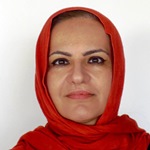
Camelia Rohani
Shahid Beheshti University of Medical Sciences, Iran
Title: The role of sense of coherence, spirituality and religious coping as predictors of HRQoL during 12-month after pre-diagnosis of breast cancer
Biography
Biography: Camelia Rohani
Abstract
When measuring HRQoL in cancer patients, determining inner resources like sense of coherence (SOC), spirituality and religious coping is important. SOC has received a great deal of attention in healthcare research in recent years. It is defined as an individuals’ global view of life, based on how comprehensible, manageable and meaningful life appears to them. This study investigated the predictors of HRQoL dimensions at the 12-month follow-up in a sample of Iranian women with breast cancer. The results showed that, after controlling for demographic variables and baseline ratings of HRQoL dimensions, the SOC is the most important predictor of HRQoL changes during the 12-month follow up, predicting almost all dimensions of HRQoL. Spirituality and religious coping were non-predictors, maybe depending on the scales used, which will be discussed. This underscores that the degree of SOC as an overall view of life and coping capacity, may be more important than spirituality and religion, as a general predictor for HRQoL changes. These results support the importance of collecting data concerning HRQoL and SOC together early at the pre-diagnosis period of breast cancer and during follow-ups. Gathering SOC and HRQoL data can assist in early detection of women who may be at greater risk for HRQoL impairments and have a lower ability of psychological adaptation to disease and treatment. Nurses and clinicians should consider the concept of SOC as a potential pathway for successful management of individualized care plans in early palliative care in breast cancer patients.
